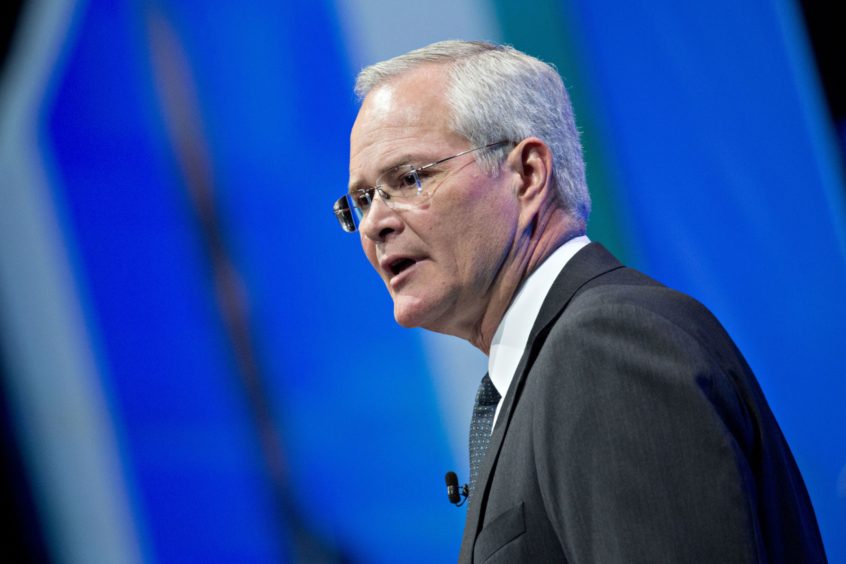
European leaders looking to tackle climate change should look to US policy and “let the market work” to avoid driving companies away with prescriptive regulations, Exxon Mobil chief executive officer Darren Woods said.
“I think it’s a huge mistake to be picking winners and losers and focusing on specific technologies,” Woods told the CEO of Norway’s Wealth Fund, Nicolai Tangen, on his podcast.
“Instead we should be looking more broadly at letting the markets figure out which solutions provide the most emissions reductions for the lowest cost.”
Europe has been working with a greater sense of urgency since the Biden administration last year passed its Inflation Reduction Act, with $370 billion in tax subsidies to cut carbon emissions. The package is turbo-charging interest in carbon capture and storage technologies, which for years have been considered too expensive and prone to failure.
Exxon, which has pledged to spend $17 billion through 2027 on low-carbon initiatives, is among the companies ramping up plans to capture emissions.
“Carbon capture is going to play a really important role. It is a technology that exists today. It’s one that we have a lot of experience in,” Woods said. “Think carbon capture and storage, think hydrogen, think biofuels, all of those recognized by credible third parties are going to be needed as part of the solution.”
While other oil majors are looking to develop wind farms and solar parks, Exxon is focused on technologies that dovetail with the company’s strengths, Woods said. “At the end of the day, we’re a molecule company, not an electron company.”
Even as it pursues carbon capture and storage technology, Exxon will keep pumping oil and gas, Woods said.
“If we stop producing diesel and gasoline, the world demand doesn’t change. Somebody else will meet that,” he said. “I stop growing liquefied natural gas and the world burns more coal.”
Norway’s wealth fund will require the companies it invests in to reach net zero emissions by 2050 at the latest. It recently voted in favor of a proposal calling for Exxon to adopt a medium-term target to reduce its customers emissions — known as Scope 3 — but the demand was rejected by a majority of shareholders.
Recommended for you
